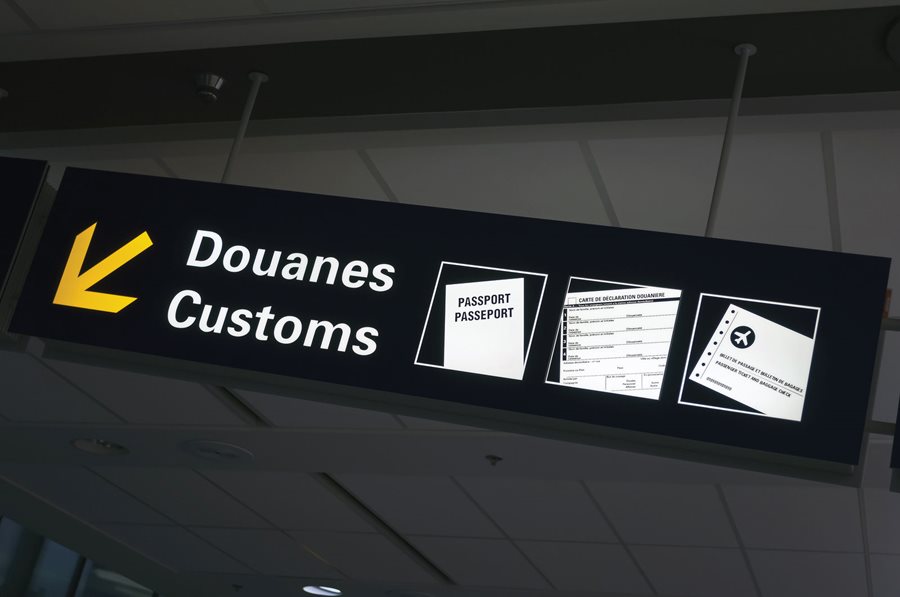🕒 Article read time: 15 minutes
Trading insights

Born into a family haulage business, John Lucy can claim to have spent his whole life in the logistics industry. He spent the early part of his career building up an international transport business, before deciding to close it 20 years ago. Since then he has held various management roles within the industry. In 2018 he joined FTA as Manager – International Trade and Transport Procedures, supporting and informing members that buy or operate international road freight services.
What piqued your interest in international trade?
I always had an interest in international transport and my first ever trip outside the UK by truck was to Rome, which felt like going to the end of the world at the time! International haulage became our business speciality and my trucks travelled as far as Morocco and Hungary, although I always regretted just missing the boom times of UK road transport to the Middle East as that was the ultimate overland challenge. Today international road freight remains the biggest mode of moving goods around Europe and beyond, but legislation changes affecting the sector are never ending. My aim at FTA is to support and inform our members who are either providing international road freight services or are the buyers of these services.
Brexit is clearly a massive issue – how does it change things?
Brexit, of course, changes everything for our members as almost every aspect of international transport is about to change. My role has increasingly involved working with various government departments as they develop policies around international road freight post Brexit, helping them gain an understanding of the implications for the logistics sector and in turn the entire UK economy which depends on it.
What are the main challenges you foresee for transport operators with pan-European operations?
The biggest challenge to date remains the lack of definitive requirements for cross-border movements – will it be full customs declarations or some simplified version? Once the facts are known, the industry will react and plan accordingly, but it needs the time to do so. I think there has been confusion in many areas and an assumption that all transport operators will be able to complete customs declarations from day one. This is simply not the case; customs is a hugely complicated area requiring specialist knowledge, training and IT systems. Already some of the largest pan-European transport operators are opting to partner specialist customs brokers rather than take this work in house. This will continue, but exacerbates the lack of capacity within the customs broker sector, which should be a growing concern for all parties in the supply chain.
You are currently leading on the launch of eCMR in the UK – what difference will this make to shippers and operators?
The future of all freight documents is digital; the eCMR could be described as the first step in this direction. Think how the parcel sector has gone; immediate POD capture feeds straight back to carriers’ management system, creating an immediate invoice, improving payment times, reducing admin and removing the issue of lost/damaged/unreada-ble delivery notes, which becomes more of a problem with international shipments. No manual on- or off-site storage of paper CMRs for up to five years as the information is held on your operating system. There is better and transparent data exchange between the shipper, carrier and receiver, all of which saves operational time between the parties. And of course not using paper CMRs will save approximately 200,000 trees being cut down each year!
You are the secretary of FTA’s Customs Working Group – what types of members do you have in your group and what issues are top of the agenda?
Typically Customs Group members have come from the UK’s largest shippers, carriers and manufacturers. International trade and customs issues are one the highest Brexit priorities. There are going to be thousands of businesses trading with Northern Ireland, who are going to become ‘international’ overnight, plus there are thousands more who need to be aware of new customs procedures for trade to the EU. As a result we now have an increasingly diverse group of new members coming from the haulage, ferry, ports and freight forwarding sectors who will be at the sharp end of new procedures. This is an exciting year for this expanding group as it will soon convert into an official FTA council and therefore members will have the opportunity to shape and influence government policy in terms of customs and international trade in this fast-developing area.
Looking ahead to the 2020s, what do you think are the most pressing issues for the logistics industry?
Short term: understanding the new customs procedures for 1 January 2021; understanding what their own, their drivers’ and their customers’ responsibilities are in terms of keeping Britain (and Ireland) trading.
Long term: complying with zero carbon targets in a sustainable way. Transport operators have the challenge of moving to alternative fuels seamlessly whilst being expected to fund the technology on often very low margins. Something has to give and this is the balancing act that we all have a part in, whatever our views are.
John Lucy is also secretary of the Customs Working Group. For more information visit:
★ www.fta.co.uk/membership/fta-councils/logistics-safety-working-group-1
Published On: 02/03/2020 10:36:27

Comments Section
If you are a Logistics UK member login to add comments.